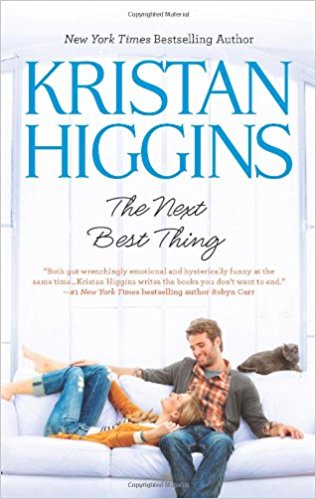 I’ve entered a bunch of romance contests. The way these things work is that judges read the beginning of the manuscript (usually between 15 and 30 pages of it) and give you as much feedback as they want. Sometimes you get a lot; sometimes a little. The feedback is always a bit all over the place. I had one entry where one judge said, “If the rest of the manuscript is as good as this, it’s publication-ready!” while another judge on the same entry gave me 60-something points out of 100 and said there was too much description and not enough internalization. So you have to take it with a grain of salt (and look for consistent criticism). They’re looking for things to comment on, after all, not just reading for pleasure.
I’ve entered a bunch of romance contests. The way these things work is that judges read the beginning of the manuscript (usually between 15 and 30 pages of it) and give you as much feedback as they want. Sometimes you get a lot; sometimes a little. The feedback is always a bit all over the place. I had one entry where one judge said, “If the rest of the manuscript is as good as this, it’s publication-ready!” while another judge on the same entry gave me 60-something points out of 100 and said there was too much description and not enough internalization. So you have to take it with a grain of salt (and look for consistent criticism). They’re looking for things to comment on, after all, not just reading for pleasure.
Anyway, one of the judges on one of my entries said my characters thoughts weren’t right and that I should read Kristan Higgins for examples of good internalization. I’ve read her before and know she’s good, so it’s not a great sacrifice. I picked up another four of her books and started in on them.
I’ll be honest, I have sort of mixed feelings about Higgins. She is a masterful writer and that judge was not wrong about her skill with characterization and internal thought. She creates really deep characters you feel for. And she is undeniably funny.
My issue comes in with her heroines. I sometimes find them too silly. I know that’s part of the humor—the ability to laugh at oneself is definitely appealing and relatable. But there’s a limit for me. It’s not unattractive for a woman to be a capable person. She can still have a big love wound of some type.
So I started The Next Best Thing with reservations. And in this case, I was happy to be presented with a heroine who is definitely very capable, at least in one area of her life. Lucy is a very skilled (and professionally trained) baker. It’s true that she could learn to stand up to her family a bit more, though. problem is that the love of her life was killed in a car crash after just 8 months of marriage. She is still very close to her husband’s family, including his younger brother, Ethan. Who she happens to be sleeping with.
The book is told entirely from Lucy’s perspective, so we don’t get Ethan’s view on things. But it’s pretty clear he’s in love with her and that she’s oblivious. After her sister has a baby, Lucy decides it’s time for her to move on from her husband and find a new one. However, she wants a man who she can’t love as much as she loved her husband. She can’t risk that kind of loss again. And she likes Ethan enough that she worries she could fall for him more than she’s comfortable with. So she breaks off their friends-with-benefits thing.
Ethan’s obviously not happy with this, but he’s supportive. Lucy is still oblivious. She goes on a few bad dates (okay, these dip into the uber-silly and are not extremely realistic, but that’s some of the humor) and one good date. But part of her problem is she’s in a small town with not a lot of men to choose from. The question throughout is, How long will it take her to realize that it’s worth taking the risk with Ethan?
As I mentioned above, this book definitely had its humorous moments, but it wasn’t as funny as some of her other books—which I really appreciated. I guess I tend to go more for books with serious substance over lighter romantic comedies (I’m not saying there’s anything wrong with light books, just that I don’t find them as satisfying). This book filled that role for me.
So did I learn anything about what to have my characters think? We’ll have to see…